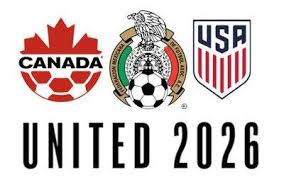February 9 – An economic impact report on the potential hosting of the 2026 World Cup in the three North American markets of Canada, Mexico and the US, reckons the event would create $5 billion in economic activity and a net benefit of $3-4 billion after taking out potential public costs.
The report, commissioned by the United Bid Committee from The Boston Consulting Group, says that individual host cities would benefit by up $480 million.
The 2026 World Cup will be the first 48-team tournament and one of the key selling points of the United Bid Committee has been the boost it will give FIFA’s revenues after World Cups in Russia and Qatar that are not expected to deliver the cash-fest FIFA banks on for its four-year funding cycle.
What the report indicates is that 2026 in North America would not just be good for FIFA but it would deliver financially in the host cities leaving none of the financial legacy issues that have plagued World Cup and governments with Brazil 2014 being the most uncomfortable example of that.
As well as generating $160 – $620 million in incremental economic activity for host cities (netting down to $90 – $480 million per city after public costs), the report calculates the World Cup would support about 40,000 jobs and more than $1 billion in incremental worker earnings across North America.
“One of the strongest arguments in favor of the United Bid is the certainty that we provide to FIFA and its Member Associations” said Peter Montopoli, Canada Bid Director and General Secretary of Canada Soccer. “As this study demonstrates, our hosting of the first ever 48-team FIFA World Cup will yield benefits to all three of our nations, and the global soccer community.
A key feature of the United Bid is that all the infrastructure already exists, significantly reducing the cost of hosting.
“United 2026 offers existing modern stadia with experienced management teams in each of our proposed host cities, and existing modern accommodation and integrated transport systems throughout our host cities,” said John Kristick, Executive Director of the United Bid Committee. “Our legacy is already in the ground, working, not on the drawing board.”
Mexican bid director Yon De Luisa emphasised that the economics were not just good for host countries and cities but that they were also good for FIFA as with infrastructure already in place organisers could focus on maximising other revenue areas.
“Together, the United 2026 bid represents the largest commercial market in the world, offering the opportunity for substantial economic and social benefit for our host cities and for FIFA, providing the stability needed to propel global football forward for years to come.
“Hosting a truly United Bid will give us an opportunity to make FIFA’s new vision come alive and will help harness the economic power of the North American market to promote, enhance and enrich the game.”
Contact the writer of this story at moc.l1714025631labto1714025631ofdlr1714025631owedi1714025631sni@n1714025631osloh1714025631cin.l1714025631uap1714025631

